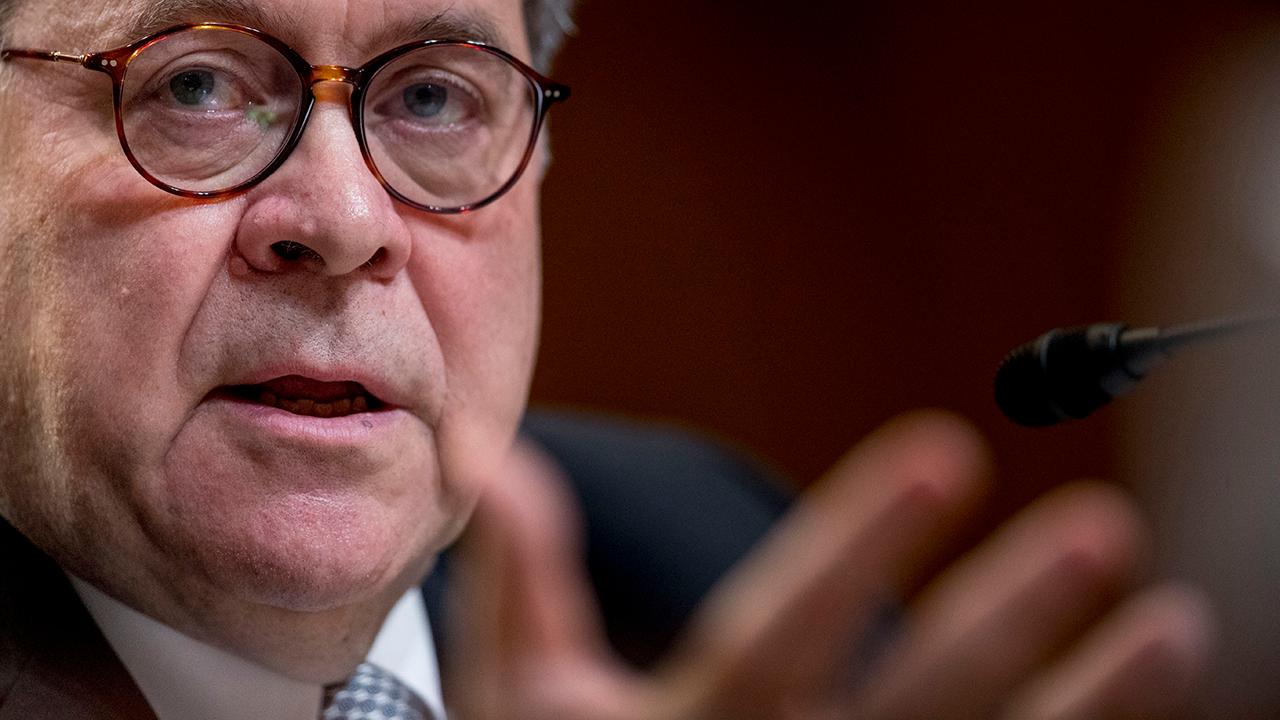Congress can keep bad actors out of the financial system
America's bank employees are on the front lines of battling crime
Among the 2 million women and men employed by America’s banks are a growing number of dedicated professionals who do not receive a lot of attention but perform a critical function for the nation. These employees, equipped with specific training and unique skills, are on the front line of an unrelenting effort to keep criminals, terrorists and other bad actors from ever gaining access to the financial system.
These individuals work to support law enforcement, using modern technology as well as years of banking experience, to spot suspicious activity that might indicate drug dealing, money laundering or even the horrific crime of human trafficking. It is a difficult job given the increasingly sophisticated schemes criminals employ, the complexity of the global financial system and our industry’s long history of maintaining customer privacy.
STEVEN MNUCHIN EXPLAINS WHY NEARLY $1.5 TRILLION WORTH OF $100 BILLS REPORTEDLY VANISHED
Most of their successes don’t make headlines.
| Ticker | Security | Last | Change | Change % |
|---|---|---|---|---|
| XLF | FINANCIAL SELECT SECTOR SPDR ETF | 54.26 | +0.97 | +1.82% |
One exception happened around the 2018 Super Bowl in Minneapolis. Working closely with law enforcement, U.S. Bank spent 10 months identifying potential transaction patterns that could signal human trafficking. They shared their insights with other local banks and law enforcement, and their combined efforts contributed to 94 arrests for sex trafficking in the days around Super Bowl LII. The program was so successful that law enforcement asked U.S. Bank to share the details with Atlanta-area institutions ahead of the 2019 Super Bowl.
I am proud of the work banks of all sizes do to combat illicit financial activity and success stories like the Super Bowl.
GET FOX BUSINESS ON THE GO BY CLICKING HERE
Still, I know there is more we can all do to combat this threat.
Thankfully, Congress now has the chance to provide law enforcement and America’s banks with critical new tools to keep bad actors out of the financial system. In October, the House passed the Corporate Transparency Act of 2019 on a strong bipartisan vote. Soon, the Senate Banking Committee is expected to consider its own version, the ILLICIT CASH Act. Both bills would leave Americans more secure and criminals nervous.
SUNTRUST, BB&T'S $66B DEAL CREATES TRUIST, CEO TALKS FUTURE
Among other things, the House bill would require many businesses to tell the Treasury Department’s Financial Crimes Enforcement Network, or “FinCEN,” who their primary or “beneficial” owners are. The current lack of visibility into corporate ownership has been cited by the Congressional Research Service, among others, as a “key vulnerability” of the U.S. financial system. That’s because without it, law enforcement can’t see connections between entities that would otherwise help reveal criminal and terrorist networks.
Thanks to the leadership of Representatives Carolyn Maloney (D-NY), Peter King (R-NY) and Emanuel Cleaver (D-MO), the Corporate Transparency Act takes aim at the kinds of shell companies that criminals frequently use to shield illicit funds. By collecting just four pieces of information from business owners and safeguarding it in one centralized database, the bill minimizes burdens on small business owners while dramatically improving the ability of law enforcement and financial institutions to replicate and expand the success of counter-terrorism and anti-human trafficking initiatives like the ones utilized at the 2018 and 2019 Super Bowls.
The Senate bill, the ILLICIT CASH Act, originally co-sponsored by Senators Mark Warner (D-VA), Tom Cotton (R-AR), Mike Rounds (R-SD) and Doug Jones (D-AL), contains a similar provision. By approving this change, the U.S. would join a growing list of countries that have created “beneficial ownership” registries designed to unmask criminal enterprises. In addition to the nation’s banks, the change is supported by law enforcement groups, organizations dedicated to combatting human-trafficking and the administration.
CASHLESS SUPER BOWL SHOPPING? VISA, NFL ARE WORKING ON IT
The House and Senate bills also enhance information sharing between law enforcement and financial institutions to ensure that banks can better focus their time and energy on combatting the most significant criminal activity. This would ensure that the nearly 1 million Suspicious Activity Reports, or “SARs,” filed annually by depository institutions actually help identify criminals and trends. This enhanced coordination will make anti-money laundering efforts even more effective.
At a time when Americans question if members of Congress can ever agree on anything, these bipartisan bills demonstrate that lawmakers can still craft commonsense measures to support law enforcement and enhance the security of the country. We urge the Senate to follow the House’s lead and pass these important reforms so the president can sign this legislation into law.
Let’s ring in the New Year by making it harder for the world’s bad actors to access the global financial system. Given the many threats we face, that should be something we can all cheer.
Rob Nichols is President and CEO of the American Bankers Association.




















